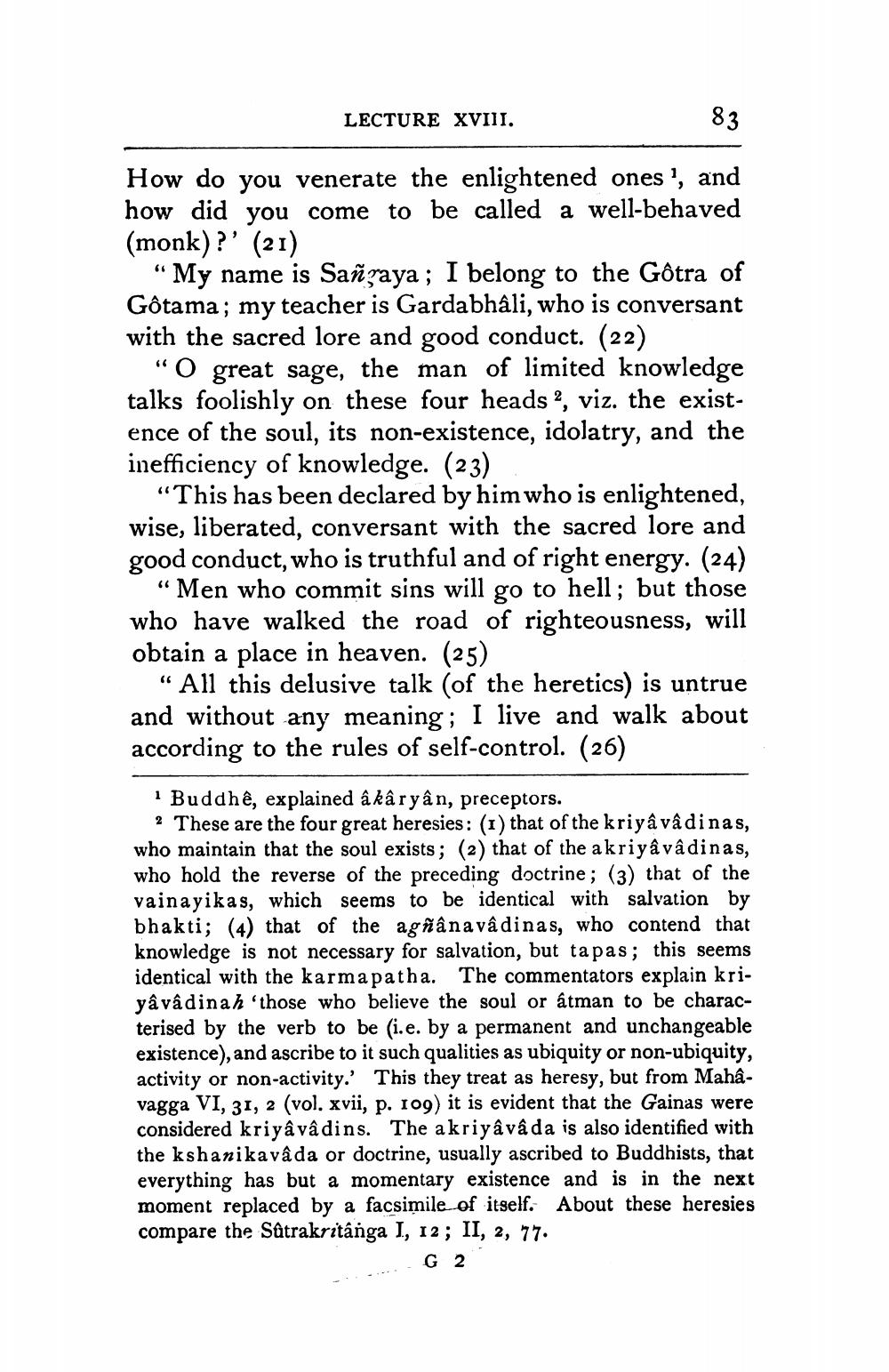________________
LECTURE XVIII.
83
How do you venerate the enlightened ones', and how did you come to be called a well-behaved (monk)?' (21)
“My name is Sañzaya; I belong to the Gôtra of Gôtama; my teacher is Gardabhâli, who is conversant with the sacred lore and good conduct. (22)
"O great sage, the man of limited knowledge talks foolishly on these four heads ?, viz. the existence of the soul, its non-existence, idolatry, and the inefficiency of knowledge. (23)
"This has been declared by him who is enlightened, wise, liberated, conversant with the sacred lore and good conduct, who is truthful and of right energy. (24)
"Men who commit sins will go to hell; but those who have walked the road of righteousness, will obtain a place in heaven. (25)
"All this delusive talk (of the heretics) is untrue and without any meaning; I live and walk about according to the rules of self-control. (26)
1 Buddhê, explained â kâryân, preceptors.
2 These are the four great heresies: (1) that of the kriyâ vadinas, who maintain that the soul exists; (2) that of the akriyâvâdinas, who hold the reverse of the preceding doctrine; (3) that of the vaina yikas, which seems to be identical with salvation by bhakti; (4) that of the agñânavadinas, who contend that knowledge is not necessary for salvation, but tapas; this seems identical with the karmapatha. The commentators explain kriyâvâdinah 'those who believe the soul or átman to be characterised by the verb to be (i.e. by a permanent and unchangeable existence), and ascribe to it such qualities as ubiquity or non-ubiquity, activity or non-activity. This they treat as heresy, but from Mahâvagga VI, 31, 2 (vol. xvii, p. 109) it is evident that the Gainas were considered kriyâvâdins. The akriyâvâda is also identified with the kshanikavâda or doctrine, usually ascribed to Buddhists, that everything has but a momentary existence and is in the next moment replaced by a facsimile of itself. About these heresies compare the Sätrakritânga I, 12; II, 2, 77.
G2




